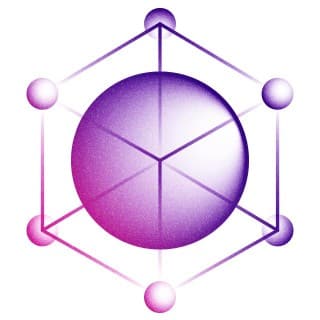Automation Testing Services
Obtain productivity gains, expedited time-to-market, and flawlessly executed software releases with Romexsoft’s test automation services.
Automation Testing Services Use Cases
Explore our diverse range of potential use cases, showcasing the versatility and effectiveness of test automation as a service in solving complex challenges in software development. This knowledge can benefit potential service customers in making informed decisions when choosing QA service vendor.
Regression Testing
Test automation allows frequent and efficient regression testing. It is not only the acceleration in the latter that accounts for significant amounts of time and effort savings. Early defect detection as well as ensured stability of the previously implemented functionality also add up to flawless execution enabling to focus on the critical aspects.
Cross-Browser Testing
Automated verification ensures consistent application behavior across different browsers and platforms. It is by identifying compatibility issues early on that automation improves the user experience and guarantees that the application works seamlessly in diverse environments: regardless of devices and configurations.
Functional Testing
Functional testing focuses on validating that software features and workflows operate as intended, ensuring each function aligns with specified requirements. It involves testing user interactions, input-output behavior, and business processes to confirm the system’s reliability.
Load and Performance Testing
Automation QA for load and performance helps simulate high user traffic scenarios, identifies performance bottlenecks, and measures system response times under varying loads. Early scalability issue detection optimizes system resources in order to ensure a smooth user experience even during peak usage periods.
Integration Testing
Automation framework streamlines the verification of system integration and communication between software components or APIs. With timely integration issues diagnosis, testing saves time accelerating defects detection, and ensuring the smooth functioning of interconnected systems.
Mobile Application Testing
Automation tests for mobile applications provide faster and more reliable testing across various devices, operating systems, and screen sizes. While manual effort reduced, automation helps identify compatibility issues, validates mobile-specific features, and ensures consistent user experiences across all devices.
Test Automation Benefits
Automation QA services enable streamlined processes, helping you address business challenges and maintain a competitive edge.
Test Automation Services We Provide
QA Consulting
Leveraging proven methodologies, we conduct testing quality and maturity assessments, map quality goals to business objectives, and define a robust QA strategy. These services include toolset selection, ROI assessments, and training to ensure long-term success.

Automation Frameworks
Our team develops and maintains reliable test scripts that adapt to application updates, ensuring ongoing validation and optimal performance. Critical testing is prioritized, ensuring the automation focuses on time-intensive, repeatable tasks.

Managed QA Solutions
Our managed QA services take ownership of your testing lifecycle, from strategy definition to execution management. With a dedicated core team tailored to your business objectives, we scale capacity based on demand while retaining institutional knowledge for sustained efficiency.

Why Romexsoft is the Right Choice as an Automation Testing Company
Since 2004, we have been a trusted and AWS-certified software development vendor. We consistently deliver modern, flexible, and cost-effective solutions, having collaborated with the majority of our customers for over four years on average
Customer-first culture
60% of our clients have been working with us for over 4 years maximizing their ROI by leveraging long-term partner relationships.
5-star review rating
90% of our clients are willing to recommend us due to transparency, responsiveness, and strong AWS expertise.
Full-fledged AWS expertise
Our engineers passed AWS certifications that validates their technical competency in a wide specter of AWS tools and solutions.
Understanding Our Automation Testing Process
Discover how we usually set up the working process with our clients for quality assurance automation projects. Understanding this process is crucial for potential clients, as it ensures transparency, sets clear expectations, and helps align our methods with the project goals.
Our approach involves collaborating with the client so as to fully understand the scope of the project, its requirements and objectives. Subsequently, we analyze the current testing process, identify areas for automation, and define the project goals clearly.
At the next stage, our experts formulate a test strategy, outlining the precise approach, methodologies, and technical stack to be employed. This includes a comprehensive test plan with a defined scope, timelines, and resource requirements.
Once the test strategy and plan are in, we proceed to setting up the necessary infrastructure, including hardware, software, and automation tools. Then we configure the test ecosystem, whether on premises or in AWS cloud, ensuring they mirror the production environment as closely as possible in order to simulate real-world scenarios and detect potential issues before they get the chance to occur.
The collaboration with the client continues to identify and prioritize test flows suitable for automation. What we do is discuss the critical functionality, business flows, and key scenarios to be covered. Then we design and develop automated test scripts using selected automation tools and automation frameworks. Those scripts are necessarily reviewed, refined, and optimized to ensure efficient, security testing, and reliable test execution.
Our team performs automated test suites with meticulous attention, overseeing and managing the entire test execution process. We diligently log and track defects, analyze test results, and provide clients with comprehensive reports that offer valuable data driven insights. We prioritize regular communication and status updates, ensuring you are continuously informed about the progress and results of the testing.
Our Automated QA Toolkit
Have a talk with our automation testing expert
Schedule a call with our team of development professionals to get more insight about QA automation services.
Software Testing Services FAQ
Automated QA services refer to the outsourcing of software testing activities to specialized service providers or dedicated testing teams. It involves leveraging automation tools and frameworks to execute test cases, validate software functionality, and identify defects efficiently. By automating repetitive tasks, businesses can achieve faster test cycles, improved test coverage, and higher software quality.
The choice of the best tool for automation testing depends on various factors, such as the nature of the application, technology stack, and specific project requirements. Popular platforms for automation testing include Selenium WebDriver, Appium (for mobile automation), and Cypress (for modern web applications). When selecting an automation testing tool, it is essential to primarily evaluate among other factors the compatibility, features, community support, and ease of integration with your existing toolchain.
When evaluating a QA automation services company, consider the following factors:
Expertise: Assess their experience, domain knowledge, and proficiency in automation testing tools and frameworks.
Experience: Review the vendors’ past projects, case studies, and testimonials to gauge their track record and success stories.
Team: Evaluate the skill set, certifications, and qualifications of their software testing services professionals.
Methodologies: Inquire about their testing methodologies, processes, and tools they use for test automation.
Communication skills: Evaluate the communication skills of a QA automation service company based on their responsiveness, clarity, collaboration, transparency, listening skills, language proficiency, and quality of documentation.
Several trends are shaping the field of test automation services right now, they are the following:
Shift-left Testing: Emphasizing early involvement of testing activities in the development lifecycle to catch defects earlier and reduce rework.
AI and Machine Learning: Integration of AI and ML technologies in test automation tools for smarter test generation, self-healing tests, and intelligent reporting.
Containerization: Adoption of container technologies, like Docker and Kubernetes, to create portable and scalable test ecosystems for automation.
Agile and DevOps Testing: Incorporating test automation into Agile and DevOps methodologies to achieve faster feedback, continuous testing, and seamless integration with build and release pipelines.
API and Microservices Testing: Increasing focus on API and microservices testing to ensure the robustness and interoperability of distributed systems.

















